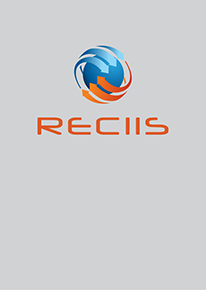Sustainable development and global health governance – From the Rio+20 to the post-2015 Sustainable Development Goals (SDGs)
DOI:
https://doi.org/10.3395/reciis.v6i3.759Keywords:
Sustainable development, Global health governance, Rio 20, BrazilAbstract
The authors examined the document resulting from the United Nations Conference on Sustainable Development (UNCSD), known as Rio+20, that was held in June 2012. They analyzed the role of green economy in the process of development and poverty eradication and the requirements for balanced governance of the environmental, economic, and social dimensions. The final document from the UNCSD, which is titled “The Future We Want”, advocates an inclusive multilateral system. It also proposes establishing a high-level intergovernmental political forum from the Commission on Sustainable Development and strengthening the United Nations Environment Programme (UNEP), highlighting the need for a broad participation of the programs, funds, and agencies from the United Nations, including financial institutions. The document recognizes health as a precondition and the result of the three dimensions of sustainable development, and it highlights the importance of setting coherent goals that are integrated with the post-2015 UN Development Agenda and the three health-related Millennium Development Goals (MDGs). The member states insisted on fulfilling the commitments related to the Official Development Assistance (ODA), including dedicating 0.7% of the gross domestic product (GDP) from developed countries to support developing countries. These member states emphasize the possibility of obtaining additional resources through the South-South cooperation and triangular cooperation as an expression of solidarity between countries. They also highlight the importance of flexibility in the TRIPS (Trade-Related Aspects of Intellectual Property Rights) Agreement to better use the technology needed for development. Finally, the member states approved the establishment of a working group (WG) to develop a proposal for the Sustainable Development Goals (SDGs), which will be incorporated into the post-2015 development agenda and should have technical support from all UN agencies (World Bank [WB], the International Monetary Fund [IMF], and the World Trade Organization [WTO], including social agencies such as the World Health Organization [WHO], among others). The result of this effort will be presented to the UN General Assembly (UNGA) in 2013, which allows time to influence the formulation of the post-2015 MDGs and to improve human health conditions, in particular.Downloads
How to Cite
Issue
Section
License
Author’s rights: The author retains unrestricted rights over his work.
Rights to reuse: Reciis adopts the Creative Commons License, CC BY-NC non-commercial attribution according to the Policy on Open Access to Knowledge by Oswaldo Cruz Foundation. With this license, access, download, copy, print, share, reuse, and distribution of articles is allowed, provided that it is for non-commercial use and with source citation, granting proper authorship credits and reference to Reciis. In such cases, no permission is required from the authors or editors.
Rights of authors’s deposit / self-archiving: The authors are encouraged to deposit the published version, along with the link of their article in Reciis, in institutional repositories.












